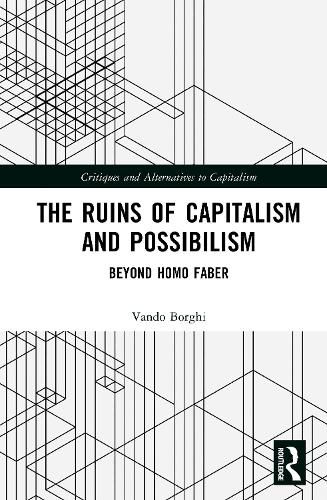Readings Newsletter
Become a Readings Member to make your shopping experience even easier.
Sign in or sign up for free!
You’re not far away from qualifying for FREE standard shipping within Australia
You’ve qualified for FREE standard shipping within Australia
The cart is loading…






This book explores two themes in connection with contemporary capitalism: infrastructures capitalism as the most advanced phase of a modernity, of which the 'workman' or homo faber is the embodiment, who exists within an infrastructure whose logic of connectivity is aimed at value extraction; and a landscape of ruins - in the form of symbolic misery, the Anthropocene and a process of refeudalisation - that the homo faber has been piling up around himself as a result. In response to this dynamic, the author elaborates a social, cultural and political project - a 'design hope' of both material and immaterial dimensions - that adopts the perspective of possibilism: an outlook that eschews ever greater social and environmental costs in the name of future 'development', but seeks a logic of reproduction based on a real politics of care in the form of generalised social action. Possibilism and the Ruins of Capitalism will therefore appeal to scholars of social and political theory with interests in critiques of capitalism and alternative futures.
$9.00 standard shipping within Australia
FREE standard shipping within Australia for orders over $100.00
Express & International shipping calculated at checkout
This book explores two themes in connection with contemporary capitalism: infrastructures capitalism as the most advanced phase of a modernity, of which the 'workman' or homo faber is the embodiment, who exists within an infrastructure whose logic of connectivity is aimed at value extraction; and a landscape of ruins - in the form of symbolic misery, the Anthropocene and a process of refeudalisation - that the homo faber has been piling up around himself as a result. In response to this dynamic, the author elaborates a social, cultural and political project - a 'design hope' of both material and immaterial dimensions - that adopts the perspective of possibilism: an outlook that eschews ever greater social and environmental costs in the name of future 'development', but seeks a logic of reproduction based on a real politics of care in the form of generalised social action. Possibilism and the Ruins of Capitalism will therefore appeal to scholars of social and political theory with interests in critiques of capitalism and alternative futures.